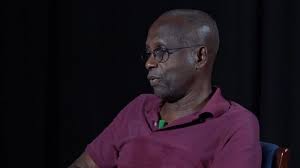Dear Editor,
Guyana’s government delegation to the opening of the Third Session of the Permanent Forum on People of African Descent in Geneva, on Tuesday 16thApril 2024 told its audience that the present People’s Progressive Party (PPP) government supports the proposed declaration for a second international decade for people of African descent. ‘Guyana looks forward to contributing to the efforts toward improving the conditions of people of African descent both by supporting the work of this Forum and by continuing to craft and implement programmes that will redound to the benefit of Guyanese of African Descent.’
This is not the first time the PPP has made such pledges that have turned to nothing because of its decades-long determination to proceed with its autocratic ethnic domination of the political space, which requires the suppression of the African people! The declaration of the first international decade in 2015 was the outcrop of the 2011 International Year for People of African Descent (IYPAD), the main objective of which was to elicit international and national action to raise awareness of the challenges facing Africans and to foster discussions to generate proposals for solutions for such challenges.
Countries were to facilitate the development of national action plans to be submitted to the United Nations. And a press release from the Ministry of Foreign Affairs in April 2010 stated that ‘government recognises and values the unique contribution that Guyanese of African descent have made to the country’s history and rich multi-ethnic heritage and will use the Year to further promote greater awareness and understanding by all Guyanese of the legacy.’ [It] ‘looked forward to the active collaboration and participation of Guyanese in making the IYPAD a success.’
A National Steering Committee (NSC) for the Commemoration of the International Day was established by the Ministry of Culture, Youth and Sport, but true to form, under the nonsensical pretext that it did not invite political parties, the PPP government did not invite the People’s National Congress (PNC), the most representative organisation of African people in Guyana, to participate. However, some members of the PNC, apparently in their personal capacities, participated and Mr. Hamilton Green became the vice-chairperson of the NSC and Mr. Aubrey Norton chairperson of the Political and Civil Committee.
By the beginning of 2011, the regime had; and sought to launch a plan but the African Cultural and Development Association (ACDA), referring to it as a ‘government programme’ and refused to participate until a mutually agreed upon document be constructed. The PNC also decided not to participate since, according to it, the process had not received the imprimatur of recognised African groups. A consensually driven national plan did not materialize and the IYPAD plan was abandoned.
In 2015 the International Decade of Peoples of African Descent (IDPAD) arrived, the APNU+AFC came to government and IDPADA-G was formed with government support. In 2020, the PPP returned with a vengeance both to government and its policy to suppress Africans and their organisations. This is the context of its present efforts to dismantle IDPADA-G. The result is that in 2024 the United Nations Human Rights Commission voiced its concern about ‘the continued ethnic divide and tensions’ in Guyana but its call upon the government to redouble its efforts to end this situation is nothing but wishful thinking!
The ‘government plan’ has sections dealing with economic, political, social, cultural, civil and legal matters and if properly contextualised suggests that: (1) the vast majority of African Guyanese do not believe that they live in an equitable system and their vision of this inequitability is holistic, relating to the government, the private sector and all else;(2) the PPP government understands this but has deliberately taken the path of ethnic/political domination; (3) the government as at present constituted does not have the political will or -after years of indoctrinating its supporters -the capacity to address the African requirements;(4) a national resolution of the demands made below will require major compromises on all sides involving leaders in whom the various communities have confidence, and (5) interestingly, as noted the present leader of the PNC, Mr. Aubrey Norton, was the chair of the Political and Civil Committee of the IYPAD process and the ‘government plan’ might well provide an insight into his and his party’s extant thinking and beyond.
Among other things, the plan calls for the promotion of inter-ethnic equity in the distribution of land for housing, business and agriculture and foresees access to arable state lands as compensation for the approximately 200 plantations purchased by the freed and manumitted Africans but made into villages by the British Government without their consent; the establishment of an effective land distribution mechanism with appropriate and legitimate representation of people of African descent; the promotion of a strategy to ensure Africans have access to funds for business and land development, entailing the establishment of a special revolving fund mechanism to enhance confidence in and ensure increased access of Guyanese of African descent to the banking system, and the development of projects in the agricultural and manufacturing sectors.
It also envisages socio-economic analyses to consider the health, education, skills base, youth expectation, etc. of various African communities, the improvement of access roads, drainage and irrigation and the resuscitation of cooperatives; strategies and the use of objective criteria for the allocation of the resources of the state to African Guyanese villages. It calls for strategies for involving African Guyanese in the fisheries sector; strategies to ensure African villages are self-sufficient and sustainable; the provision of scholarships and training in key and critical areas to sustain the skills base of all the communities; access to machinery and equipment to ensure sustainability and revitalising of village economies; infrastructural development comparable with all other communities; establishing a coalition of representatives of African descendants to share best practices and resolve development issues, and the establishment of a research unit at UG to focus on African descendants.
In the political sphere, among other things, the programme demands the implementation of a system of governance in which Africans are effectively represented and participating and this requires the establishment of inter-ethnic equity in the governance of Guyana, inter-ethnic equity in representation on the Ethnic Relations Commission, a mechanism to ensure the approval by African organisations of adequate, appropriate and legitimate representation of their rights and a mechanism to ensure that the interests specific to people of African descent are addressed.
Sincerely,
Dr. Henry Jeffrey













